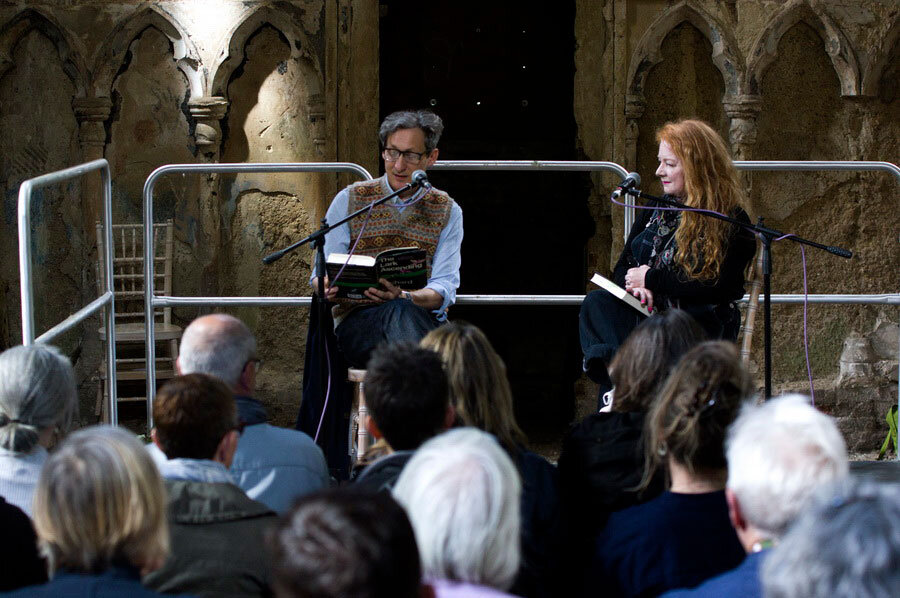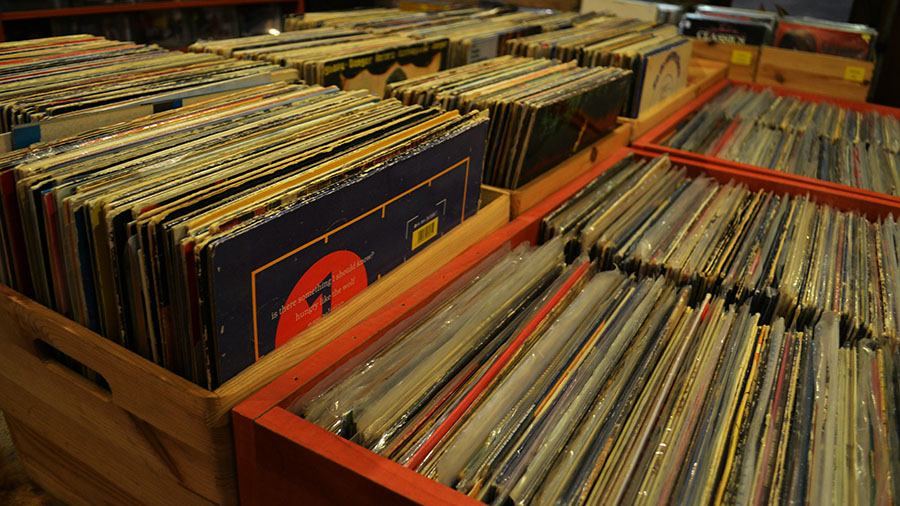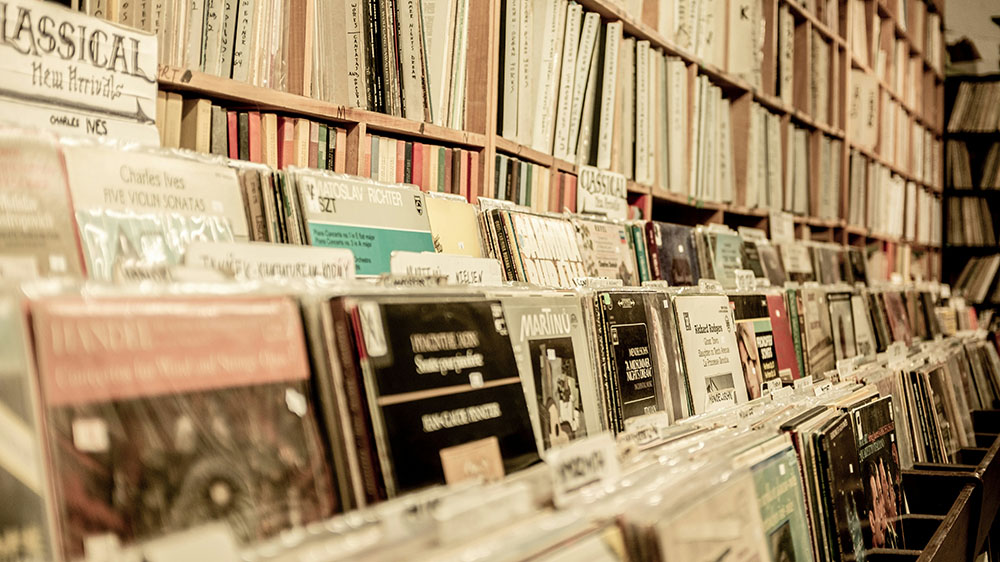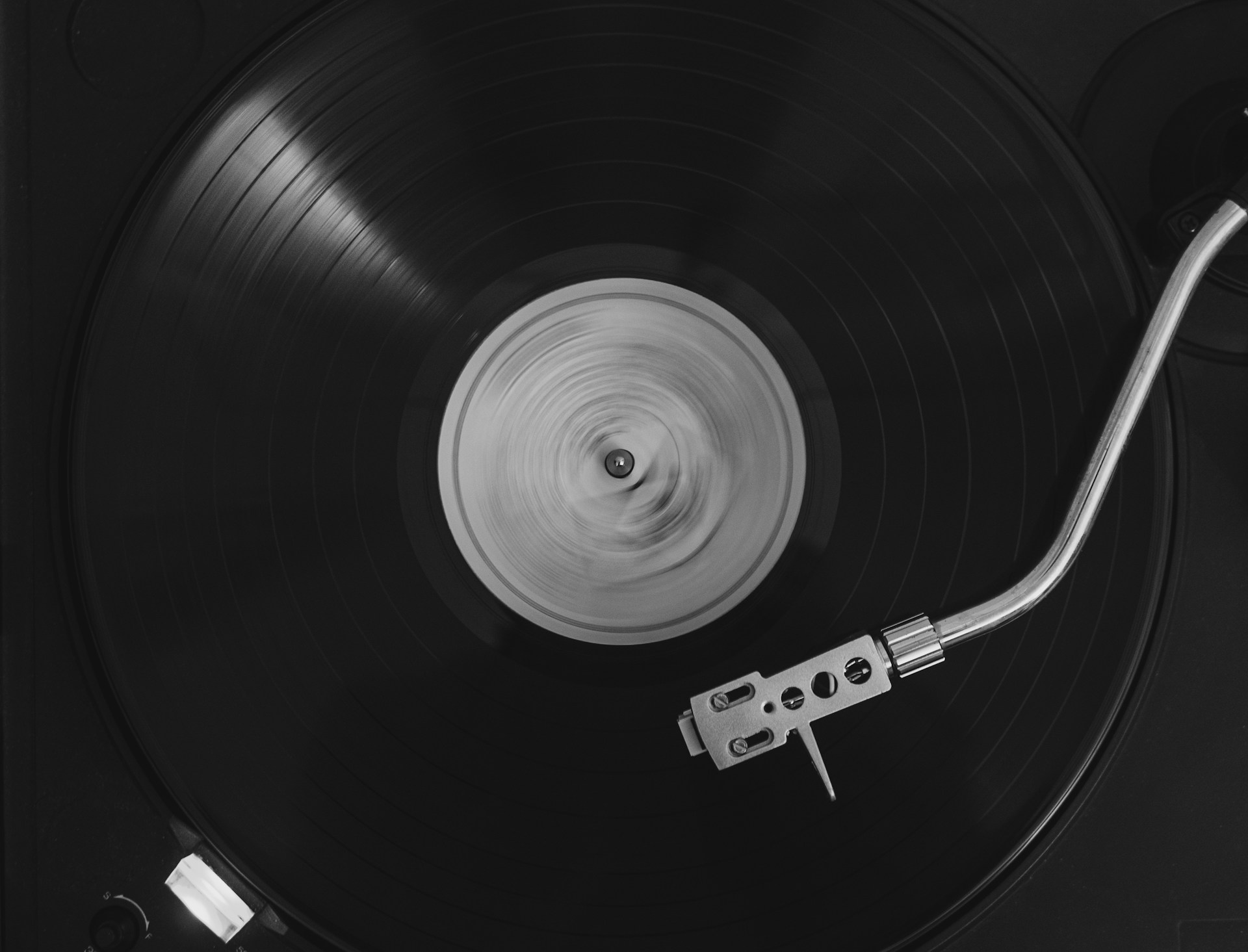At a time when digital music and streaming services rule the world, vinyl record stores offer a unique cultural experience that is not just a warehouse for records, but a social place for music lovers. Richard King, author of Original Rockers, takes us back to his years working at Revolver Records in Bristol, a place that not only sells records but is a testament to cultural history.
At Revolver Records in Bristol, time seems to flow in isolation. It is not only a gathering place for music, but more like a small universe full of life. Its charm goes far beyond the transmission of sound waves, it is a part of culture, society and lifestyle, a space where life can be freely expressed and enjoyed. These stories, like apple cider, are both mellow and memorable, leaving people with endless aftertastes.
“There was a time when we used to drive in to buy cider from a farm outside Bristol. A farmer made a really strong cider and we had small barrels of it in the back. And for about a month, we just drank cider all the time. So we were kind of drunk in the summer,” said Richard.
The experience is not just about the taste of the wine, but more about the memory and experience of that time. “And it’s really smell, it smelled very strong. And I did think this is now a really strange place — we’re just kind of drinking. You walk through the door and it smells of cider. And it’s just kind of I think we might have all gone mad. Because not many shops will let people drink and openly sell you something at the same time. So that was a funny time.”
At Revolver Records in Bristol, there is not only music reverberating from all backgrounds, but also a crowd of souls in search of solace, providing a space for those in need of comfort and socialisation with a power that is hard to replace in any other medium. Here, every note and every record is a bridge to the heart.

In describing the venue, Richard King revealed some details he had not written: “There were some things I remember that I didn’t write about, because I didn’t want to embarrass anyone was there were people who went there when they had nowhere else to go.” It is a safe and inclusive haven for those who need to escape the pressures of reality.
The atmosphere in the shop makes it feel as if time has stood still. “people who had maybe been in the pub, but didn’t want to go home yet and didn’t want to be alone. So they just stood there. And they like just standing there for maybe an hour just talking,” Richard said. These simple interactions, wrapped in music, seem particularly warm and sincere.
“And the more I think about it, the more people like that there were all men all probably about the age I am now probably lived on their own. Not homeless, but probably not wealthy. They had somewhere they had a home but that a couple of them were maybe retired teachers, maybe they drank a bit too much. Just didn’t want to be on their own at home.
And I remember those people liking just they felt safe there talked about music. And there was a sense of community service in offering what would now be called a safe space to those people and that with hindsight that I find that quite powerful that it sort of operated that way,” said Richard.

Of course, some seemingly casual exchanges and conflicts also build the unique social texture of music venues.
There was one thing Richard didn’t want to share until years later: “one thing I didn’t say in the book was Rotterdam behind the counter. And I was really young and really stupid.”
One day, the shop had an unusual customer, a tattoo parlor worker who was also a member of the Hells Angels, who had come to buy bluegrass records. Richard recalls: “Because I was very stupid. I said, ‘bluegrass, Hells Angels don’t like bluegrass, it’s too soft for you.’ And he looked at me and just said, ‘I’ll take your head off with an axe.’ And I looked at Roger, and he said, ‘Don’t look at me, you’re on your own.’”
“And I did kind of learn a lesson about my stupid big math,” Richard said with a smile. Over the years, he realized that these social interactions were about much more than the music itself, but the relationships and lessons behind the music. “I wrote this book nearly 10 years ago, and now with 10 years distance, it strikes me that it’s the social aspect of the shop that really kind of stands out to me as much as anything to do with music.”
The period of writing Original Rockers was an emotionally fragile and reflective one in Richard King’s life. “Original Rockers is quite emotional because I wrote it in between both my parents dying, so I was in quite a vulnerable, strange place.” This deeply personal experience gives the book a unique emotional depth, making it not just a narrative about music, but a fusion of personal feelings and historical retrospection.
“I think people like the world before the internet, like the world before smartphones.” Despite the convenience provided by modern technologies such as Kindle and Spotify, they have not completely changed the nature of reading and music, especially for those who value traditional experiences. Instead, vinyl shops offer a space to rebel against the culture of fast consumption, a place for people to slow down and actually listen to and experience music. This kind of experience is especially valuable in modern society.

“The record shops are still popular because it’s a connection to that pre digital era. It is a process listening to a record of engaging in a commitment in time that the digital life we will lead is in a very different context. We live a very rushed fragmented life and in music live a life of playlists and Spotify says view album not listened to the album but view it’s a listening device. It suggests that you look at something not listening to it, they make their money from listening to something. So I think there is a quality to vinyl and record shops that mean life slows down in them and people find that very attractive, I think quite comforting.”
The charm of record stores also lies in the personal traces, as well as the rich emotional and historical depth behind them. These objects are not only collections, but also carriers of personal history and cultural memory. In our fast, digital modern lives, these objects that connect to the past provide a unique sense of emotional satisfaction and deep human connection, allowing us to find a little peace and connection in a fast-paced world.
“With secondhand records, you find traces of other people’s lives, like their names written on it, or bit of handwriting, and it’s a connection to when that record was first released.” These traces not only tell the history of the object, but also reveal the personality and fragments of the life of the former owner.
“If you buy a record released in the 1970s, there’s a form of time travel or connection, you can get that in books as well. But there’s something about ownership kind of filtering through too many hands. If that’s a copy of The Great Gatsby that’s sort of loaded with a certain significance. If you buy a secondhand copy of that and see someone’s name in it. You think, Oh, I wonder what they thought of when Fitzgerald writes that when Gatsby first kiss Daisy, it felt like a tuning fork struck upon a star, that’s very vivid moment and very short novel.
“Similarly, if it’s a record by I don’t know Joni Mitchell, you think I wonder what this very intimate, meditative, happy, sad, beautiful record meant to the person who had it that I know own it, or if it’s a record by Lee Perry or by King Tabby, I wonder what this meant to that person to have a Jamaican record in their house.”
At the Revolver Record, music is not only a manifestation of sound, but also an art form that transcends itself, becoming a means for people to express themselves and experience resonance, a wordless exchange between people, and a place for individual emotions to be released. Every note played, every impromptu performance, is a celebration of life and an affirmation of existence.
“In a shop like revolver, you could play anything you wanted. Really, anytime in on a Saturday afternoon, sometimes, we’re encouraged not to play anything too crazy. But really, you could play whatever you wanted,” said Richard.
“There was a lot of obscure music. And when you have a institution like revolve, run by music, obsessives that can kind of bring out the worst elements of music snobbery. So people are quite happy to play quite interesting, extreme unpredictable music.” This environment makes the record store not only a place to sell music, but also a stage to show personality and emotions.
Richard recalled a special moment, which became an indelible memory in his mind:“I remember playing a song by a band called the Replacements and it’s called here comes a regular and it’s about as a very sad line like summers past it’s too late to cut the grass, and it’s about someone who irregular someone who’s a homeless person who lives in a bar basically. And there was quite a customer he had a limp, and he was quite gruff. And I imagined that he may have suffered from mental health problems. But I remember playing that song, and sitting on the stool and he just standing the other side of the counter and listening to it. To me, we didn’t say anything. And he just said to me, ‘he’s got an amazing voice, this man’. And it’s such a source of intimate exchange to sort of inhabit that song together.”
Revolver Record not only records the sound of the times, it also witnesses the most authentic emotional expression of people. Its value far exceeds its commercial function, and it is an important part of urban culture and personal emotion, adding an irreplaceable emotional latitude to urban life.
“I saw people cry there, but one of the most moving moments was a man talking about he bought a CD from us.” This CD is not just an object, it becomes a vehicle for an emotional journey. “It was a contemporary Blue Note recording. I can’t remember the name but had a vocalist on it. And he came back, he’d moved to mid Wales to the hills, quite near where I live now. he said, ‘I took it back to my farmhouse. And I put it on and I went to get out the CD player and I realized my hands were wet because I’ve been crying so much.’”
